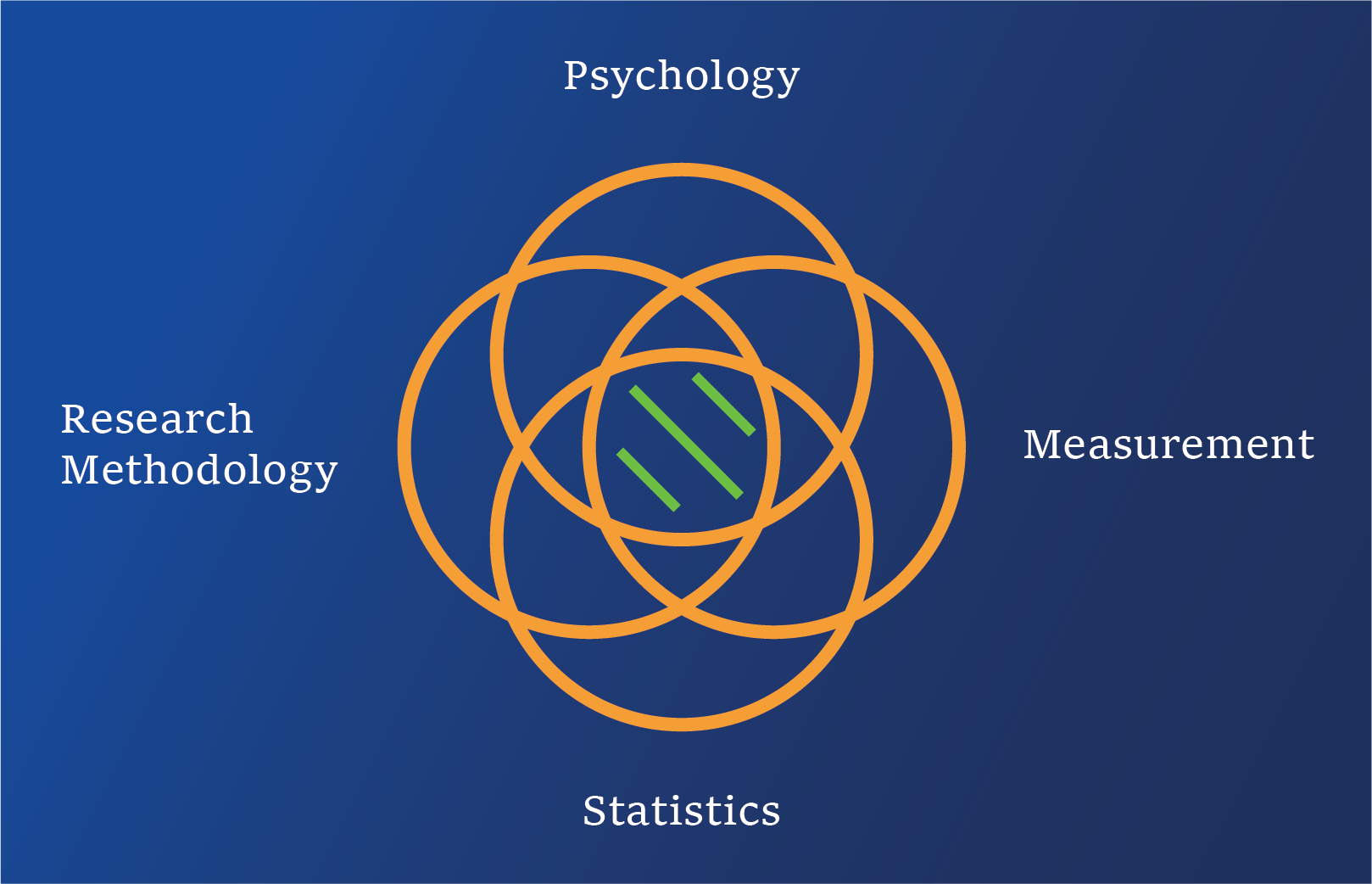The term “Psychometric” comes from the place where Psychology, Measurement, Research Methodology and Statistics overlap.

Psychometrics helps HR professionals answer questions such as:
- Is my hiring process efficient?
- Is my process getting me high quality employees?
- Which part of my process is most effective?
- Are we getting people with the attitudes our organization needs to be successful in the long-term?
- What is the predictive validity of each part of my process?
- What is the ROI from each part of my process?
As an HR professional, you’ve probably used the terms Psychometric Assessments and Metrics during communication with your colleagues and clients. The terms assessments and metrics both come from the field of Measurement in which numbers are scientifically assigned to quantities. Most people are familiar with test scores that they obtained in high school from teacher-made assessments, college entrance exams or pre-employment interviews. The numbers from these interviews and assessments are possible because of the field of Measurement.
What are psychometric assessments?
In Psychometric Assessments, measurement involves
- Asking the right questions
- Scoring the responses with an algorithm to create a score that has predictive validity
Predictive validity answers the question: Do people who score higher on the assessment ACTUALLY perform better on the job?
Job Performance is defined in the context of the job, and could include answers to questions such as are they more productive, do they communicate well, do they collaborate well, do they apply common sense to solve problems, are they creative?
- In Psychometric Science we apply rigorous Research Methodology and appropriate Statistics to develop customized psychometric assessments by studying your people and using their job performance data.
- We are therefore able to develop psychometric assessments which help you to identify more people whose attitudes, work ethic and skills are like those of your top performing employees, and that differentiate them from your other employees.
- To be in compliance with Equal Employment Opportunity Law, Psychometric
Science addresses:
- Validity
- Reliability
- Fairness
For details about validity, reliability and
fairness, see our blog titled: Psychometrics 101 for HR Professionals:
Evaluating Assessment Effectiveness.
Summary
Psychometrics provides information for evaluating: New Hire Quality, Assessment Effectiveness, Sourcing Channel Efficiency, and compliance with Equal Employment Opportunity Law.
Psychometrics answers essential questions such as: Do job applicants who score higher on an interview actually perform better on the job? Are all of our assessments of high quality? Is our selection process getting our organization employees with the attitudes, knowledge and skills we need to be successful in the future?
We hope you found this blog article helpful. For more information or assistance, please contact us at info@psychometric-solutions.com
Related Blog Articles
- Smart Questions to ask when Purchasing an Assessment for your Organization.
- Psychometrics 101 for HR Professionals: Evaluating Assessment Effectiveness.
- How to accurately measure an Individual’s Job Performance.
About the Author
Dr. Dennison Bhola has more than 25 years of experience working in the field of psychometrics creating validated instruments such as assessments, structured interviews and inventories. With his teammates, he has developed more than 1000 assessments for use by organizations around the globe. His expertise includes evaluating new hire quality, assessment effectiveness, source channel efficiency, time to hire, cost per hire, and other such metrics that are of critical importance to Human Resource Professionals. He also specializes in fairness analyses and auditing compliance with Equal Employment Opportunity guidelines, such as the 4/5ths rule.

